New Reviews, CCFF + Livestream Tonight!
A little bit of everything for this week's roundup of reviews and don't miss the next livestream video mixtape tonight at 7pm/CST! Come join the fun and say hi!
Tonight Tonight! - Friday, May 9th at 7pm/CST - Join Me For A Livestream Video Mixtape (#3). Oddities, Twilight Zone, Amazing Stories! Click here!
NEW REVIEWS
The Zebra and the Bear (dir. Patrick O’Connor)
For those who know me, I’m immediately drawn to stories about mysterious illness because I myself, almost died from one back in 1995. So of course, I jumped at the opportunity to watch this engaging, straightforward story about a mother’s resilience in the face of her daughter dealing with something debilitating, scary and challenging to manage.
We follow Amber Olsen, a Mississippi mother whose world is shattered when her two-year-old daughter Willow is diagnosed with Multiple Sulfatase Deficiency (MSD)—an ultra-rare genetic disorder that affects fewer than 50 diagnosed cases worldwide. The prognosis is devastating: progressive deterioration, loss of motor skills, and death, typically before age ten. There is no treatment, no cure, and perhaps most cruelly, no research being conducted to find one.
What makes this documentary isn't just the subject matter or even the presentation, but how O'Connor captures a raw humanity embedded within this tumultuous journey. Originally hired to create a fundraising video for Willow, the filmmaker recognized something extraordinary in Amber—a mother who refused to accept what was happening. The title becomes clear as we watch: Willow is the zebra with her rare condition, and Amber is the protective mama bear who will stop at nothing to save her child.
The film opens with home videos showing a happy, developing toddler who gradually begins losing abilities she once had. We witness the family's confusion turn to horror as they receive the diagnosis. "It was like standing in the middle of a tornado," Amber describes, her calm voice belying the devastation she must have felt. What follows is not a story of acceptance, but of fierce determination.
O'Connor's documentary excels by balancing the scientific with the deeply personal. We learn about gene therapy and clinical trials through Amber's learning curve, making complex medical concepts accessible without oversimplification. The camera doesn't shy away from difficult moments—Willow's physical therapy sessions, her struggles to communicate, the toll on her two older sisters—but these scenes are handled with dignity and respect.
The documentary's pacing mirrors the family's journey: the initial shock and grief, followed by Amber's transformation into a formidable advocate. We watch as she establishes a foundation, organizes fundraisers at local model railroad museums, and eventually raises over $2 million for initial research. The film doesn't glamorize this process—we see the rejections, the frustrations, and the slow progress that characterizes rare disease advocacy.
What later emerges is a damning indictment of the American healthcare system. In the world's richest country, a mother must become a scientist, fundraiser, and lobbyist to save her child. Pharmaceutical companies show little interest because the patient population is too small to be profitable. As one expert explains, there are over 7,000 rare diseases affecting millions of Americans, yet only 5 percent have FDA-approved treatments.
O'Connor occasionally inserts himself into the narrative, asking questions from behind the camera or guiding conversations toward clearer explanations. Sometimes I’m torn about this decision from a filmmaker and here is no exception. At the same time, it doesn’t detract from the overall impact.
The film's most powerful moments come from watching Amber navigate the byzantine world of medical research. She recruits scientists, learns about mouse models versus rat studies, and pushes for gene therapy development. Her journey takes her to Washington D.C., where she advocates for rare disease funding, only to be met with polite indifference from her senator's representatives, who don't even allow cameras in the office.
Throughout the film, Willow remains at the center—a sweet, expressive child whose affliction progressively robs her of mobility and function but never her gentle spirit. The camera captures her joy during good moments and her struggle during difficult ones. Thankfully, all the while, the film avoids the trap of being manipulative in earning its emotion. It doesn't present Amber as a superhero but as a mother doing what she believes any parent would do—fighting for her child with every resource available. The film's power comes from showing how extraordinary this ordinary love becomes when faced with impossible odds.
Patrick O'Connor has crafted a documentary that works on multiple levels: as an intimate family portrait, as a primer on rare disease advocacy, and as a critique of healthcare priorities. The film's straightforward approach—letting the story unfold chronologically without flashy techniques—serves the material well, allowing the natural drama and emotion to emerge organically. Those looking for something with a more unconventional approach — look elsewhere.
Still, The Zebra and the Bear thoughtfully and compassionately reminds us that behind every medical statistic are real families fighting battles most of us can't even fathom. It challenges viewers to consider what they might do in Amber's position while acknowledging there are no easy answers. In documenting one mother's refusal to accept the impossible, O'Connor has created a testament to the power of parental love and the urgent need for a healthcare system that doesn't abandon those with rare, life-changing conditions.
Sharp Corner (dir. Jason Buxton)
Jason Buxton's Sharp Corner begins with a familiar conceit—a family moves into their dream home only to discover a nightmare—but quickly veers into far more compelling psychological territory. This Halifax-set drama delivers a tense, darkly absorbing character study that lingers long after the credits roll.
Ben Foster stars as a middle-management office worker who, along with his therapist wife Rachel (Cobie Smulders) and son Max (William Kosovic), has just purchased a sleek modernist home in a secluded stretch outside Halifax. Their domestic bliss is shattered on their first night when a car tire crashes through their living room window, narrowly missing Josh's head. The McCall family soon discovers their beautiful new home sits dangerously close to a deadly curve in the road—a "sharp corner" where numerous fatal accidents have occurred.
While most families would flee such a location, something about the accidents awakens something primal in Josh. What begins as morbid curiosity evolves into full-blown obsession as he becomes fixated on the idea of saving crash victims. Foster, who has built a career playing tightly-wound, expressive, intense characters, delivers a masterfully restrained performance here. His Josh is a study in quiet desperation—a passive, awkward man whose newfound obsession provides the purpose his mundane life has been lacking.
The film's hook lies in how it keeps us questioning Josh's motivations. Is his fixation born from genuine altruism or a flailing, desperate ego? As he secretly takes CPR classes and purchases expensive training equipment, all while his marriage deteriorates, Buxton's screenplay (adapted from Russell Wangersky's short story) explores the dangerous territory of masculine identity in crisis. Josh's pursuit of heroism becomes increasingly disturbing as his obsession consumes him, alienating his wife and nearly traumatizing his son.
There’s a lot to commend including the production design throughout. The floor-to-ceiling windows that initially offer panoramic woodland views become portals to potential disaster, and the home's sleek design morphs from welcoming to institutional as the family dynamic deteriorates. The house itself becomes a character in the narrative, a purpose-built model home not unlike the modernist paradise constructed for Bong Joon-ho's Parasite. Though this film is not on the same level, the same themes are tackled in a way that keeps the viewer interested.
Sharp Corner works as both literal description and metaphor—the dangerous curve in the road mirrors the unexpected turns in the characters' lives. If the film has a weakness, it's that some of the family drama elements occasionally follow predictable patterns, and certain character leaps feel slightly rushed in the early going. It does go on a bit long (the final act especially) but the strengths outweigh the weaknesses especially if you’re a Ben Foster fan. He embodies this character through every subtle gesture—his wimpish body language, the distant look in his eyes, his soft, unsettling voice. It's a fully committed performance that requires viewers to sit with discomfort rather than offering easy catharsis.
Though far from perfect, Sharp Corner gains confidence as the film progresses, steering the story toward a knockout ending that feels both hauntingly inevitable and morally complex without resorting to unnecessary extremes. In an era where mediocre yet entitled, privileged men are wreaking havoc on the world stage, Sharp Corner feels unexpectedly timely—a cautionary tale about the dangers of masculine insecurity and the desperate pursuit of significance. It's a film that knows exactly where it's going, even as its protagonist loses his sanity in spectacular, unexpected ways that make you wonder how it’s going to turn out.
CCFF Capsule Reviews!
For those who don’t know, I help maintain the Chicago Critics Film Festival website. CCFF is an annual event I always look forward to every year since it’s the only festival curated by film critics. Erik Childress and Brian Tallerico along with a lot of hard-working writers/programmers put their heart and soul into this and I love being able to attend in support. This year was a little rough and as per usual, didn’t get to see everything I wanted to but here’s a quick rundown of titles I did get to see with capsule reviews. Cannot wait for next year!
Friendship (dir. Andrew DeYoung)
Cringe comedy is an acquired taste. If you’re prone to anxiety, sometimes it can be challenging to sit through something like Curb Your Enthusiasm even if it’s admittedly heightened to a degree that often doesn’t reflect reality in any way. Tim Robinson’s sketch show, I Think You Should Leave, epitomizes the hot and cold experience for me. Sometimes I think his show is hysterically funny, other times I shrug off certain sketches entirely. Though Robinson did not write the latest A24 dark comedy, it sure feels like it at times since once again, part of it I found to be insanely hilarious, other moments fell a little flat.
Essentially an absurdist amalgam of The Cable Guy and I Love You Man, Tim Robinson proves that his particular brand of unhinged comedy can indeed sustain a feature-length film, though not without occasional strain. Craig is a socially awkward suburban dad whose unremarkable life is upended when he meets his charismatic new neighbor Austin, played with effortless charm by Paul Rudd.
Robinson's performance is a masterclass in tension and eccentricity. His Craig is a walking social disaster—a man who pours coffee to the brim, interrupts his cancer-survivor wife's support group, and has no concept of when enough is enough. When Austin takes a genuine interest in him, Craig's desperate need for male connection quickly spirals into obsession. What begins as an innocent bromance devolves into increasingly uncomfortable behavior that threatens to destroy both his newfound friendship and his entire personal life.
The film excels the most in its early scenes, where Robinson and Rudd's odd-couple dynamic generates genuine laughs through awkward encounters. Robinson's facial expressions alone are comedic weapons—his look of too-intense concentration in the opening scene immediately sets the tone for the discomfort to come. Friendship occasionally falters is in its latter half, when the narrative begins to feel like a series of loosely connected sketches rather than a cohesive story. Though a memorable toad-induced trip and Robinson's commitment to mining the weird vulnerabilities of platonic rejection keep the film engaging even when it meanders and struggles to maintain itself (a subplot involving Craig’s wife’s disappearance is when I checked out a little).
This is more than just another cringe comedy—it's an insightful exploration of male loneliness and the desperate need for connection even if it loses steam a bit here and there. For fans of Robinson's particular comedic sensibilities, this uncomfortable journey into the fragility of the male psyche delivers both huge laughs and surprising emotional resonance. Oh and a great sequence involving ordering a sandwich from a particular chain restaurant that you won’t forget.
Familiar Touch (dir. Sarah Friedland)
One of the festival’s best films is also one of the more subtle and subdued selections from this year. Again, I’m not sure if this was the right movie for me to see at a vulnerable time when I’m looking into options for my own aging mother. Nevertheless, this is one of the better films I’ve seen about growing old and learning to adapt to a whole new environment, especially when it comes to memory care and assisted living.
Sarah Friedland's feature directorial debut Familiar Touch offers a profoundly moving portrait of dementia that eschews melodrama in favor of sensorial intimacy. At the center of this delicate character study is Kathleen Chalfant's immaculate performance as Ruth Goldman, an octogenarian / former chef whose fierce independence crumbles as she's relocated to an assisted living facility.
What distinguishes Friedland's approach is her refusal to externalize Ruth's condition through flashy techniques. Instead, the film gradually shifts its perspective to mirror Ruth's experience, where time becomes elastic and touch replaces temporal understanding. In one pivotal scene, the camera follows Ruth's hands as she caresses her chest and arms, before unexpectedly jumping to a moment of hand-holding with her doctor. This tactile association represents the film's brilliant stylistic rupture – we're no longer observing Ruth's decline but experiencing her altered consciousness, her innerspace.
Chalfant delivers a masterclass in restraint and compassion, portraying Ruth with dignity and emotional truth. She captures the character's oscillation between lucidity and confusion without resorting to actorly affectations. Whether confidently reciting her borscht recipe or mistaking her son for a potential romantic interest, Chalfant maintains Ruth's essential humanity throughout.
Friedland, drawing from her background as a choreographer, develops a visual language that emphasizes the poetry of physical gestures. Her camera work (with cinematographer Gabe C. Elder) modulates between intimate close-ups and sterile distance, I often thought of both Sarah Polley and Kelly Reichardt’s approach to storytelling throughout here. A sequence involving Ruth having a panic attack during a “speed dating” event resonated with me quite strongly.
Familiar Touch ultimately reframes older adulthood as its own coming-of-age story (something the director brought up during the Q&A) – a period of profound dislocation, unrequited longing, and the search for identity. By treating Ruth's experience with seriousness and compassion, Friedland has crafted a tender, unsentimental film that illuminates the dignity in vulnerability and the persistence of selfhood even as memory fades. This is empathic, insightful, observational filmmaking of the highest caliber.
Brother Verses Brother (dir. Ari Gold)
The Francis Ford Coppola-backed Brother Verses Brother delivers a captivating experiment in "Live Cinema" that blurs the line between reality and fiction. Shot in what appears to be one unbroken take through the streets of San Francisco, this intimate journey follows twin musicians Ari and Ethan Gold (playing versions of themselves) as they search for their 96-year-old father, Herbert Gold.
The film's premise is deceptively simple: two brothers wander from venue to venue, performing songs while grappling with their complicated relationship and the impending loss of their father. What elevates this beyond a standard indie narrative is its ambitious technical approach – improvised dialogue captured in real-time as the brothers traverse the city's iconic hills and alleyways.
The Gold brothers bring authentic chemistry to their performances, with Ari's extroverted enthusiasm contrasting Ethan's more introspective, melancholic nature. Their music – a blend of indie folk and pop with poetic lyrics – serves as the emotional backbone of the film, revealing inner thoughts they struggle to express directly. When joined by a charming local musician, Lara Louise, the dynamic shifts, creating moments of genuine connection amid the brothers' constant bickering. There’s also an unexpected cameo from a particular band member in a bar that you’ll undoubtedly smile at.
While the film occasionally drags with repetitive conversations and long walks (especially towards the end as they ascend uphill), the technical achievement remains impressive throughout. The camera work creates an immersive experience that transforms San Francisco into a third character, its streets and hidden corners becoming the stage for this family drama. Plus the sound design alone deserves praise for interweaving diegetic and non-diegetic approaches.
Brother Verses Brother is ultimately a meditation on family, mortality, and the healing power of art. The Gold brothers' journey culminates in a moving finale that feels earned despite the film's structural limitations. Not every aspect of this experimental approach works perfectly and it does drag at certain points, but the film's unabashed honesty and ambition make it a standout at this year’s festival. Not to mention the fact that the majority of the songs are beautifully composed and performed throughout.
For fans of intimate musical dramas like Once, this cinematic experiment offers a raw, unfiltered glimpse into the complex bonds of brotherhood and the universal desire for parental approval, all set against the backdrop of one of America's most beautiful cities. Not to mention what it all leads up to once we meet their father. At that point, I was definitely overwhelmed in the best way possible. Despite not having distribution yet, I can see this striking a chord with musicians, those with aging parents and anyone who wants to experience an inventive approach to a family drama that for the most part, hits all the right notes especially in the end.
I saw other films during the critics festival but a few will be coming out later in the year, a couple I need to re-watch and process further and there were two that didn’t fuel me with a need to write about them (which doesn’t mean they weren’t good of course). Plus it’s a busier time than usual for me but I’ll bounce back with more writing throughout the summer. Though once again, the Director’s Club podcast is on hold (at least from my hosting duties) until August. Thanks everyone for reading!





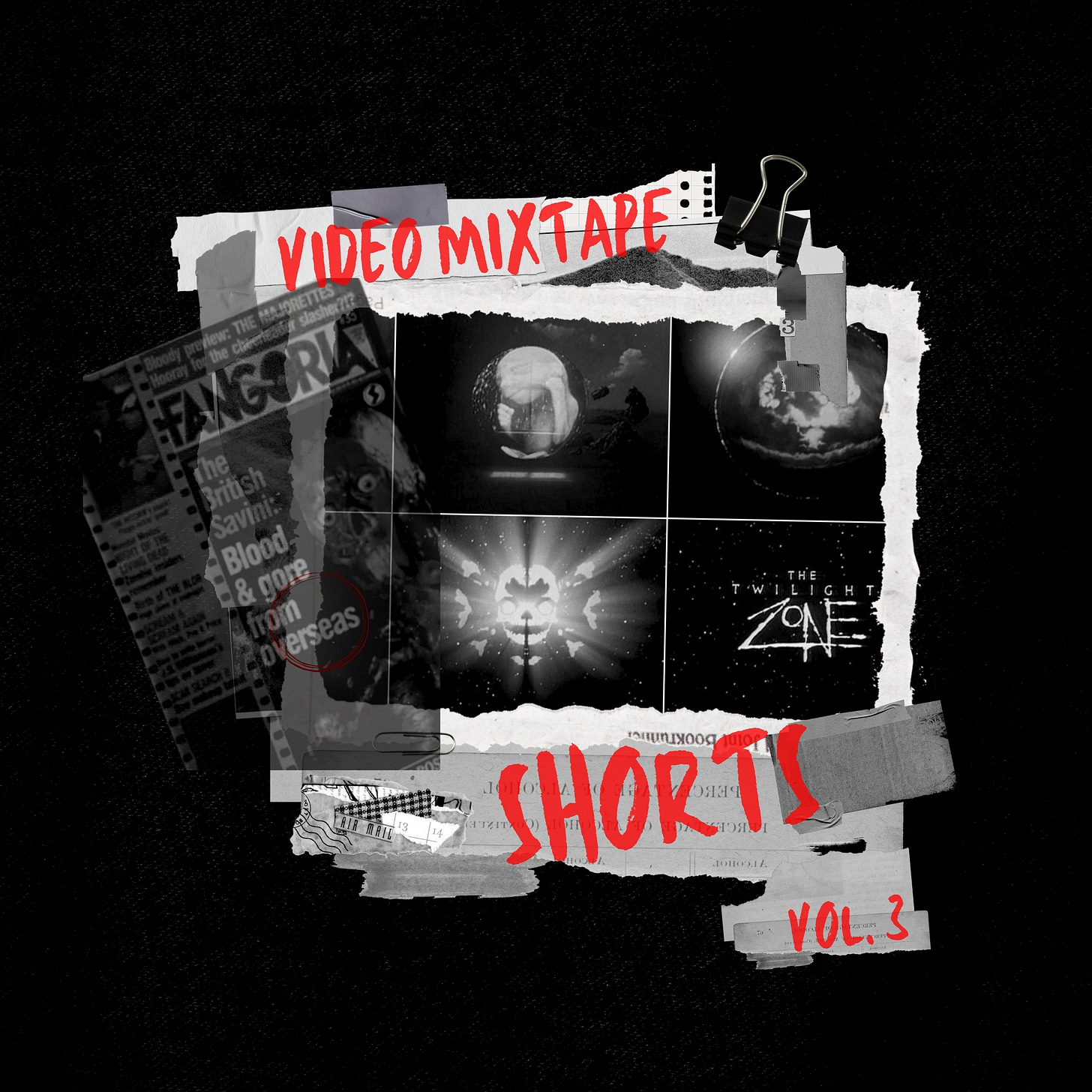
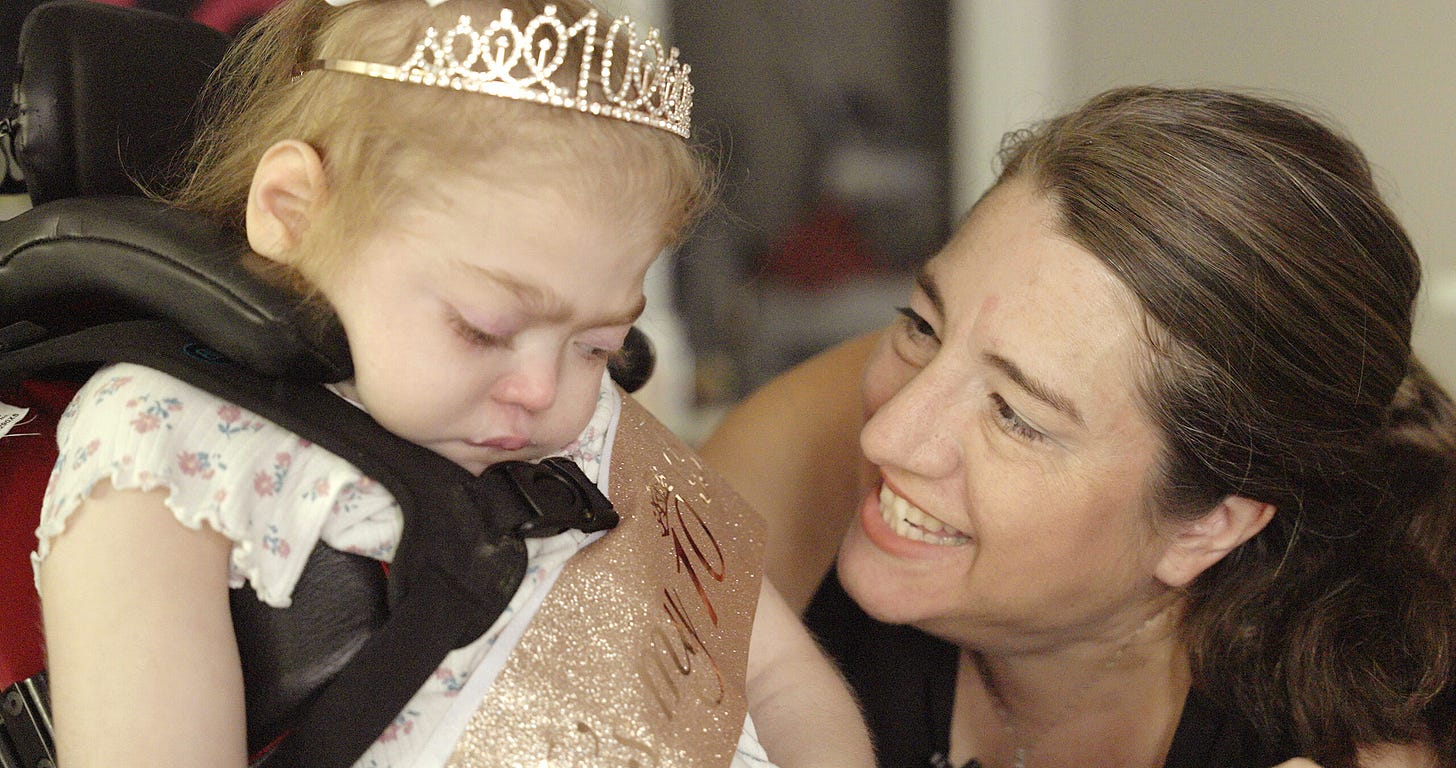


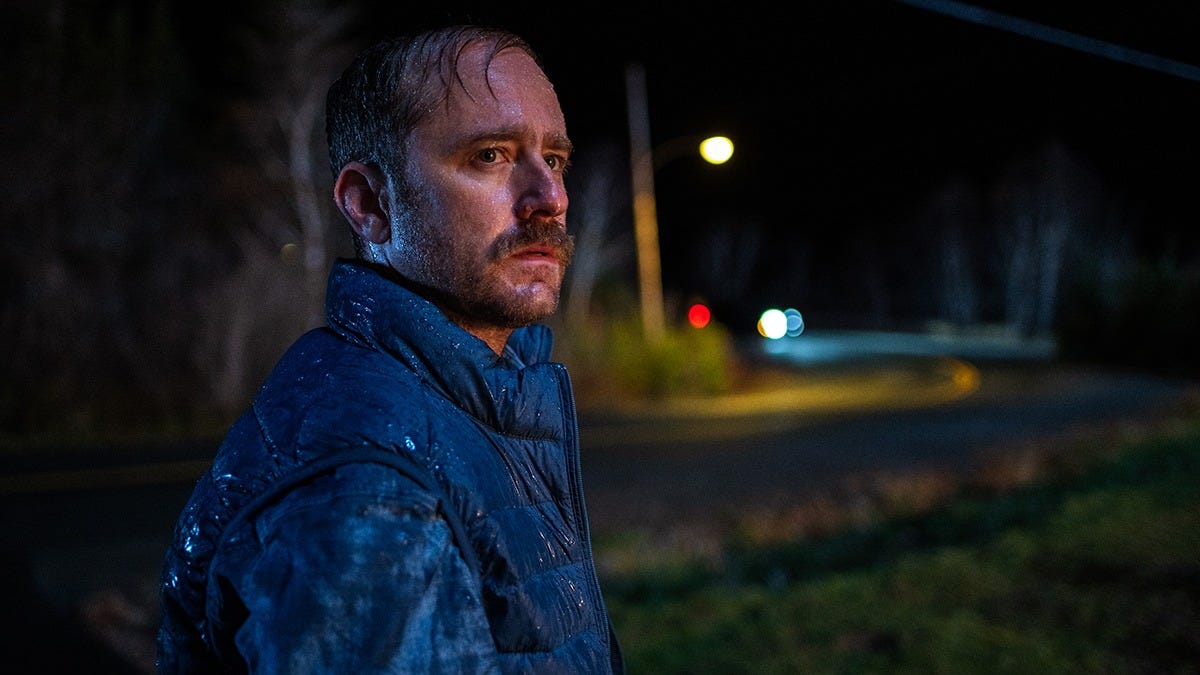
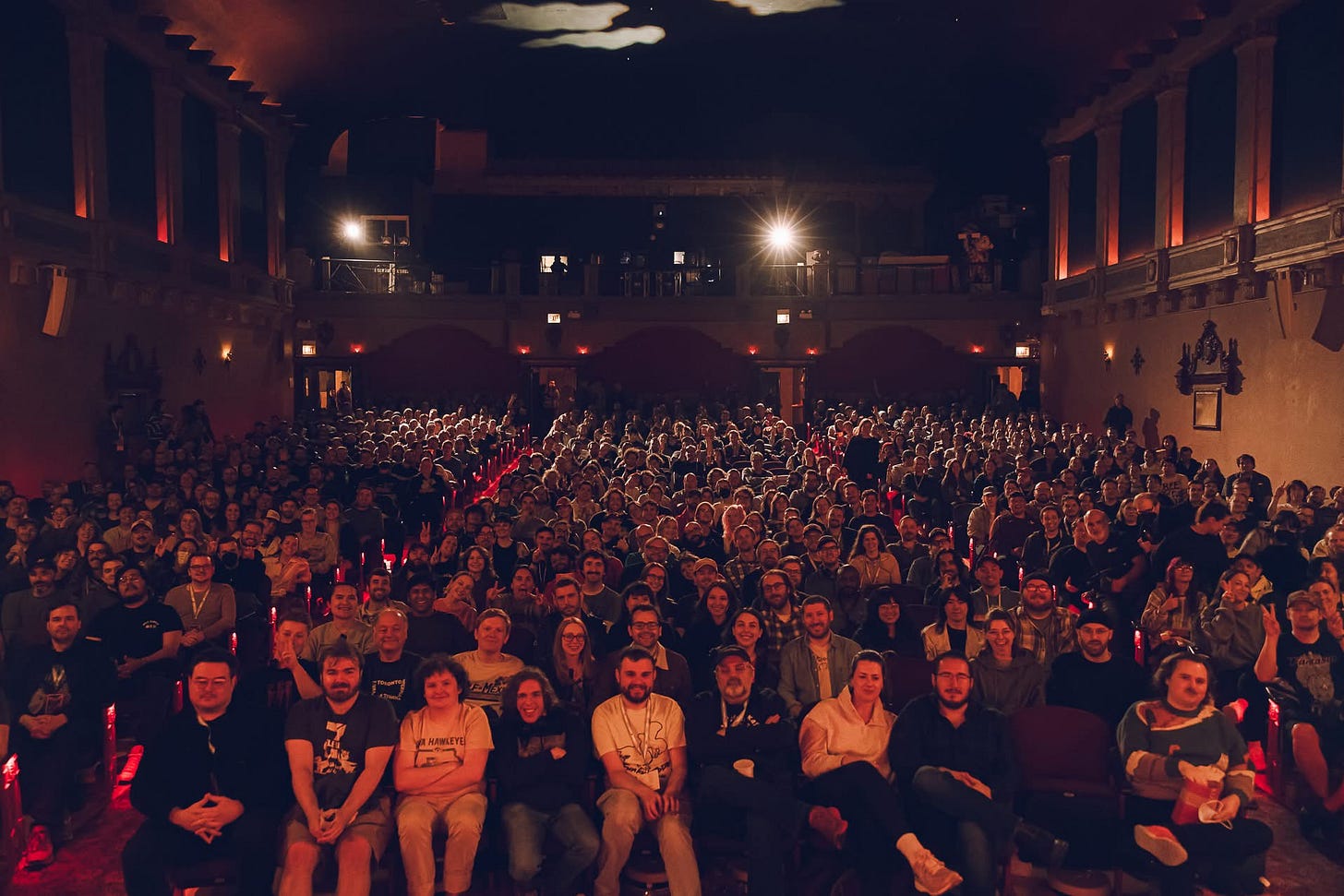

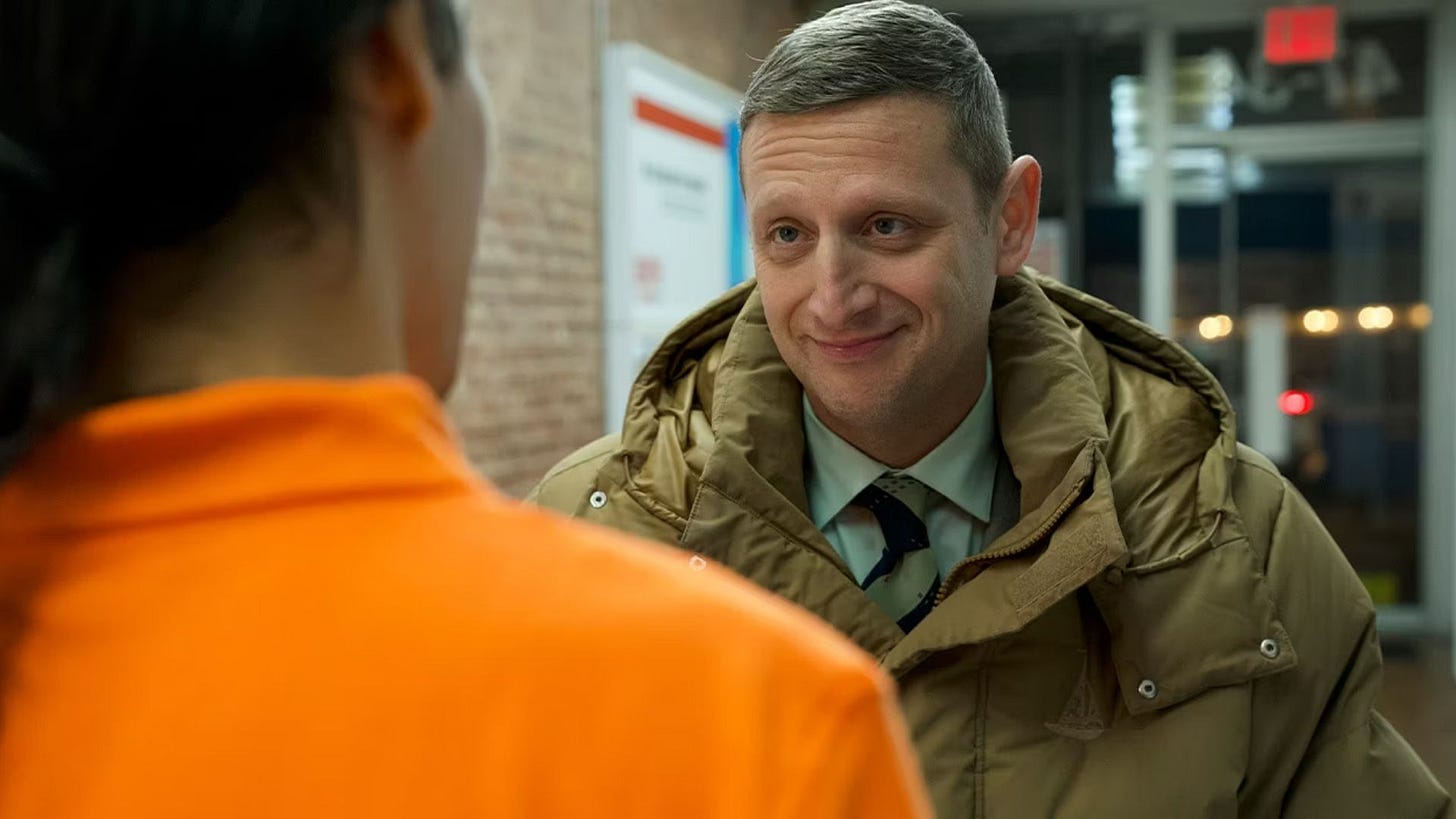



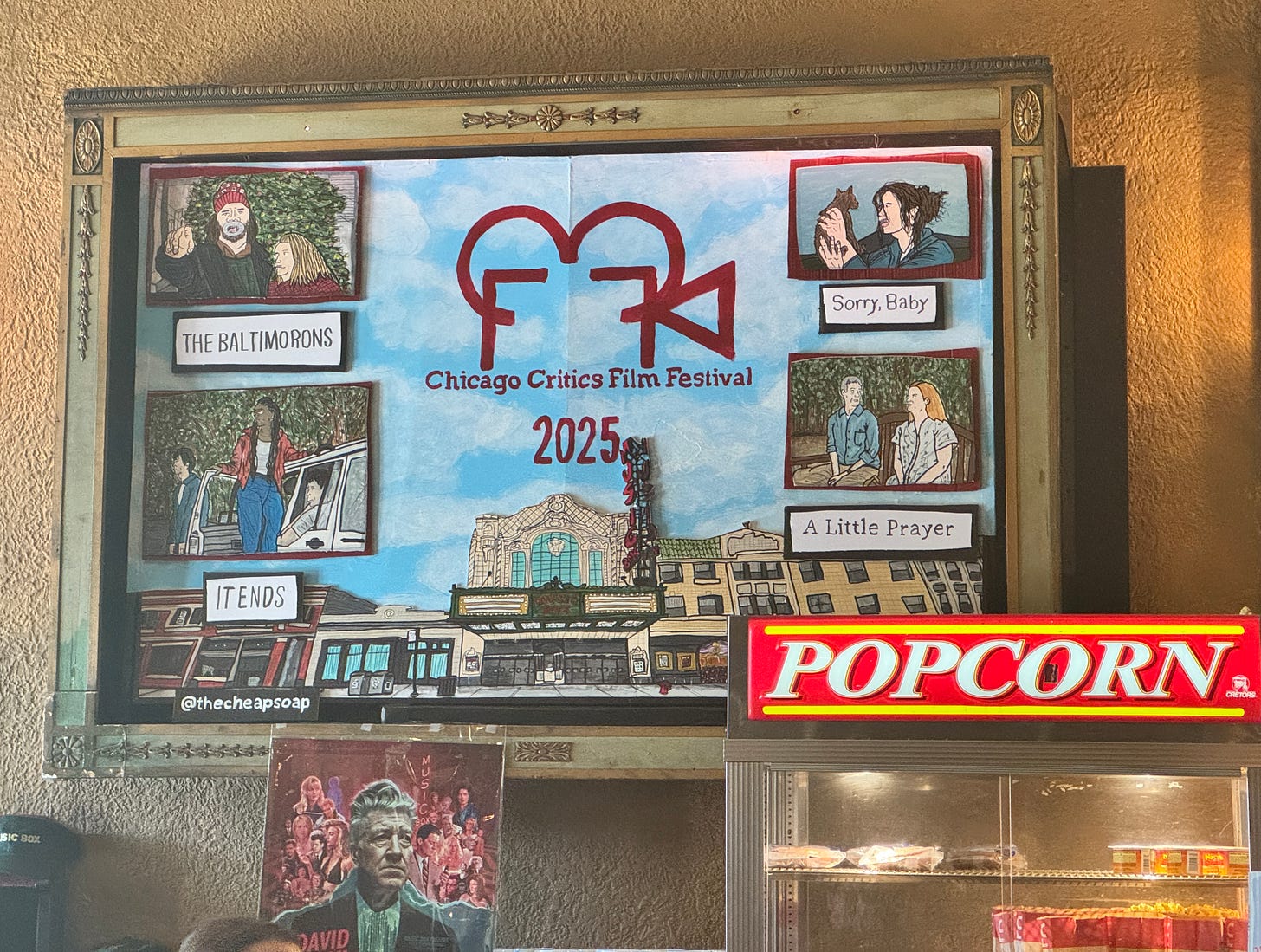
I saw Brother Verses Brother and absolutely loved it! In fact just wrote about it on my Substack! Wish I could have made it to a few other screenings!